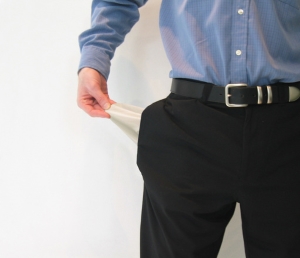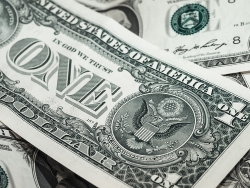Wisconsin Chapter 13 Bankruptcy Law Firm
Milwaukee Chapter 13 Attorney Explains What You Need to Know
Attorney’s Note: The below should not be construed as a substitute for legal counsel. Contact Milwaukee bankruptcy lawyer Steven R. McDonald for your free initial consultation.
What is Chapter 13 bankruptcy?
Chapter 13 bankruptcy is similar to Chapter 7 bankruptcy, however, Chapter 13 Bankruptcy focuses primarily on a repayment plan rather than liquidation of debt. Like Chapter 7 Bankruptcy, Chapter 13 is strictly for individuals, not businesses. Click here for more information about Chapter 7 vs Chapter 13 bankruptcy.
This form of bankruptcy filing is also usually best for individuals who have lost income and owe creditors, but have since reestablished a secured source of income. Chapter 13 is also known as a wage earner plan. Jump to Chapter 13 bankruptcy rules.
Below, our Chapter 13 attorney has provided detailed information on Chapter 13 bankruptcy filings, including Chapter 13 Bankruptcy requirements, how to file and the fees associated with filing Chapter 13 Bankruptcy. Contact us for a free case evaluation, or for more information.
( 1 )
Filing fee and payment options
( 2 )
Learn if you qualify to file Chapter 13 in Wisconsin
( 3 )
How Chapter 13 Bankruptcy Works
( 4 )
How Chapter 13 can help you keep your home
( 5 )
Two different methods for getting out of debt
( 6 )
What property you can keep
( 7 )
How long it's on your report, and the effects
( 8 )
When garnishment can be stopped, and when it can't
( 9 )
How often you can file
( 10 )
Advice on pro se bankruptcy filing

Chapter 13 Bankruptcy Attorney for SE Wisconsin:
| Milwaukee |
Oak Creek |
Cudahy |
Franklin |
St. Francis |
| South Milwaukee |
Union Grove |
Racine |
Kenosha |
Greendale |
| Hales Corners |
Muskego |
Caledonia |
Bay View
|
..and more!
|
Contact us today to...
- Get expert advice and a guiding hand
- Heal your financial wounds
- Restore a sound financial future
How Chapter 13 Bankruptcy Unsecured Debt Repayment Works
Chapter 7 bankruptcy completely discharges unsecured debts—you are not required to pay down these debts. Chapter 13 bankruptcy works differently. You must pay a certain percentage of your unsecured debts over the duration of your repayment plan. The percentage is determined by your disposable income and how much your unsecured creditors would have gotten if you'd filed for Chapter 7. Back to top
Unsecured Debts Covered in Chapter 13 Bankruptcy
 |
Debt from Unpaid Utility Bills
Getting utility companies off your back by filing for Chapter 13 works in accordance with a unique "adequate assurance" requirement, introducing a little more complexity into the repayment process. Speak with Steven R. McDonald today for more information. Read more
|
 |
Certain Federal and State Income Taxes
Determining whether or not your income tax debt is fully dischargeable by filing for Chapter 13 bankruptcy depends on a handful of requirements. Most likely, there are still some priority debts you'll need to pay off over the duration of your repayment plan. Read more
|
 |
Unpaid Credit Card Bills
In many cases, filing for Chapter 13 bankruptcy will eliminate most credit card debt. Depending on your income and several other factors, you will likely have to pay off a certain percentage of your nonpriority unsecured credit card debt.
|
 |
Medical Bill Debt Relief
Filing for Chapter 13 bankruptcy will not get rid of all of your debt from medical bills, but, as is the case with all nonpriority unsecured debts, you will be required to pay off a certain percentage of the debt over the duration of your repayment plan. Read more
|
 |
Debt from High-Interest Payday Loans
Payday loan debts are unsecured debts, and therefore wholly dischargeable through Chapter 7 bankruptcy, and Chapter 13 bankruptcy can help you clear massive unpaid interest payments from payday loans as well. Read more
|
|
|
Chapter 13 Bankruptcy Rules
Chapter 13 Bankruptcy in Wisconsin is for people with regular income with some disposable income that can be dedicated toward a debt repayment plan. You must also be able to pay the creditors as much as if you would have filed for Chapter 7 Bankruptcy. Under Chapter 13, you are required to set up a debt payment plan to repay creditors, which averages 3-5 years.
How are payments calculated in Chapter 13?
The amount of your monthly payment is different for each person and set of circumstances. How much you pay is established by several factors including your disposable income as well as the amount and nature of the debt. Your monthly payment amount is determined by using the standardized means test.
When you complete your repayment plan, you will be relieved of the remaining dischargeable debt. Get a free bankruptcy consultation with an experienced attorney to learn more.
Back to top
Chapter 13 Bankruptcy Requirements
 Filing for Chapter 13 bankruptcy puts money back in your pockets.
Filing for Chapter 13 bankruptcy puts money back in your pockets.When trying to figure out how to file for Bankruptcy under Chapter 13, there are a few things our Milwaukee bankruptcy attorney wants you to know. While the majority of individuals and families do qualify for Chapter 13, those with a million dollars or more in secured debt or those with unsecured debts close to $400,000 may not qualify.
For those who qualify, our skilled team will assist you in gathering the necessary records and information. A list of all the documents and information needed can be found by clicking here. These items include:
- Monthly income
- Monthly expenses
- List of your property
- Deed
- Mortgage
- Car titles
Your bankruptcy attorney will use this information to prepare all the necessary bankruptcy documents for filing. After your bankruptcy petition has been filed, a meeting of creditors will be scheduled at a location within a reasonable distance from where you reside.
This bankruptcy meeting of creditors is a necessary step to receive approval of your Chapter 13 payment plan. As with a Chapter 7 Bankruptcy, you will be required to take 2 financial management classes. These may be taken online or by telephone. With our Milwaukee bankruptcy attorney, this often stressful process is handled with utmost ease. As soon as your bankruptcy is filed, an automatic stay takes effect. This provision prevents creditors from contacting you or placing liens on your property.
Back to top
Filing Fee for Chapter 13 Bankruptcy
The Bankruptcy Court charges a fee of $310.00 to file for Chapter 13 Bankruptcy. This cost does not vary based on household size. If you are unable to pay the full cost in one payment a filing fee payment plan can be arranged.
Back to top
Chapter 13 Bankruptcy & Foreclosure
Chapter 13 Bankruptcy can stop home foreclosures, as well as the accumulation of new interest on state and federal tax debt. Chapter 13 can be a good strategy to repay overdue car or mortgage payments.
Back to top
Chapter 13 vs debt consolidation
Chapter 13 bankruptcy is a type of debt reorganization that offers protection from creditors during the filing process. It begins with an automatic stay, which prevents creditors from taking further action against you. Your unsecured debts will be discharged at the end of your repayment plan, which typically lasts 3-5 years. During this time, you will be required to pay a small percentage of your unsecured debts.
Debt consolidation is another option for managing your debts. This involves getting a low-interest loan to pay off higher-interest debts, allowing you to make a single monthly payment instead of multiple payments to various creditors. However, debt consolidation can take many years to pay off and may involve automatic withdrawals from your bank account. It's important to research your options before making a decision.
Meanwhile, your creditors are still charging you interest and collectors are still harassing you day and night. Learn more about the pros and cons of going with a debt relief company and other types of debt management.
Back to top
Chapter 13 bankruptcy exemptions
In Wisconsin, Chapter 13 bankruptcy allows you to keep all of your property (exempt and non-exempt) provided you have an approved debt repayment plan set in place. Learn more about Wisconsin bankruptcy exemptions.
Back to top
Chapter 13 on your credit report
Chapter 13 bankruptcy remains on your credit report for ten years. Naturally, creditors don’t love seeing bankruptcy on a credit report, but any actual damage depends largely on your credit score before you file. A potential creditor reviewing your credit report may see Chapter 13 bankruptcy more favorably than Chapter 7.
In a Chapter 13 filing, you repay some of or all of your debts over time and therefore, you may be considered a better credit risk than a person who filed Chapter 7. Learn more about what bankruptcy does to your credit score.
Back to top
Does Chapter 13 bankruptcy stop garnishment?
It depends.
Certain types of tax debt can be discharged in a Chapter 13 bankruptcy. Wage garnishment for these specific types of tax debts will be stopped by the automatic stay when you file Chapter 13.
If your wages are being garnished because of a civil judgment for consumer debt, the garnishment can also be stopped by filing a Chapter 13 bankruptcy petition.
If your wages are being garnished for alimony, child support or federally-funded student loans, filing bankruptcy will not eliminate this type of garnishment.
Back to top
Can you file Chapter 13 more than once?
If you want to file for Chapter 13 bankruptcy, you must wait at least four years since your last Chapter 7 discharge, and at least two years since your last Chapter 13 discharge.
The time interval is measured from the date you filed each bankruptcy case in which you received a discharge. Learn more about how often you can file for bankruptcy in Wisconsin.
Back to top
Should you file for Chapter 13 on your own?
While you have the right to file bankruptcy on your own, bankruptcy courts tend to strongly advise against this course of action. The success rate for pro se bankruptcy filing is remarkably poor for those filing Chapter 13 bankruptcy on their own. Individuals who choose to file Chapter 13 bankruptcy on their own rarely succeed. Learn more about filing for bankruptcy without a lawyer.
Back to top
 Discharge payday loan debt by filing for Chapter 13 bankruptcy.
Discharge payday loan debt by filing for Chapter 13 bankruptcy.Cudahy Bankruptcy Lawyer Helps You Get Rid of Payday Loans
Sometimes when you need quick cash, you resort to a high-interest cash advance like a payday loan. Unfortunately, if you are untimely in your repayment, interest payments can multiply quickly and become a real problem.
If your repayments get out of control and you have no other options, Chapter 13 bankruptcy gets rid of payday loan debt for individuals who have since found a source of income. Bankruptcy lawyer Steven R. McDonald, serving the greater Milwaukee area, has years of experience handling Chapter 13 filings and helping people struggling with their payday loan debt. Before you try tackling the Chapter 13 bankruptcy process on your own, understand the risks and responsibilities of filing for bankruptcy without a lawyer.
Schedule a free consultation today and find out how he helps you get rid of your payday loan debt once and for all.
Milwaukee Chapter 13 bankruptcy attorney plans your repayment.
What You Should Know Before Filing for Bankruptcy in Milwaukee
Declaring Chapter 13 bankruptcy is, obviously, nothing to be taken lightly. Before even making a mental commitment to filing bankruptcy a reorganizing your assets, you need to know everything about the filing process, including:
Regain Control of Your Life NOW by Filing for Chapter 13 Bankruptcy
Specializing in only Chapter 7 Bankruptcy and Chapter 13 Bankruptcy, our Milwaukee bankruptcy attorney knows all the intricate ins and outs of these bankruptcy laws.
Milwaukee Bankruptcy Attorney with Your Best Interests at Heart
Our Milwaukee bankruptcy attorney knows how to set up a debt repayment plan that works best for you. With 15 years of specialized Chapter 7 and Chapter 13 bankruptcy experience, our Milwaukee bankruptcy attorney knows exactly what it takes to make filing for bankruptcy easy, fast and stress-free.
We are a debt relief agency. We help people file for bankruptcy relief under the Bankruptcy Code.
Client Testimonials
Read All Reviews
I was very very pleased with the service provided and will recommend Attorney McDonald if I have anyone ask I will gladly recommend you.
Steven was nothing short of amazing with helping my wife and I out! Him and his staff were always willing to go the extra mile for us. We appreciate everything he has done for us, and would recommend …
Steve is very professional and honest. Thank you.
I called Steve last summer with some questions. He took 20 minutes to answer all my questions over the phone. No appointment and didn't even charge me for all the information he gave me! His advice wa…
Steve and his team are absolutely amazing. I had an extremely difficult case to say the least and they were on top of it and kept me on top of it!! Thank you so much you guys were wonderful. I highly …
Fantastic! He was so patient with us while we tried to navigate this unknown! So very kind and extremely knowledgeable with the ability to explaining things to make sense to us. On top of all the grea…
Amazing and Straightforward Lawyer
Amazing and straightforward lawyer. Informs you of potential issues and settles the nerves. Easily accessible, just don't abuse it.
Very helpful, kind and knowledgeable, just awesome!
Steve and, his assistant Randy was so nice. My mom and, I were in today to sign our paperwork and, was very helpful. He went step by step on the papers he printed out and, sign. What an awesome lawyer…
An excellent colleague and knowledgeable about all things bankruptcy.
Highly Recommend to Everyone
Steven and his Randi were fantastic. He explained everything we needed to know from start to finish. Very professional and help us get through this with ease of mind. Would highly recommend him to eve…
The best attorney I have ever dealt with. Kind and compassionate.
Attorney Steven was simply phenomenal. He took the time to explain in detail every step of the process. I could think of no other place to refer others. Thank you!
Bankruptcy Process Explained
I had a very good experience working with Steven McDonald. He took the time to thoroughly explain the bankruptcy process and kept me updated at every step. He also assisted me in ensuring that all the…
Everything worked out just the way he told me from the beginning with my chapter 7 case. Steven is honest and a very trustworthy guy. Would recommend to anyone thinking about bankruptcy. 10/10 stars f…
Smooth Bankruptcy Paperwork
This office made the bankruptcy paperwork a very smooth process. I am grateful for the quick turnaround and easy going transition from a bad situation to a relief to my current situation.
Bankruptcy Lawyer in Wisconsin
Steve was absolutely wonderful! He was very kind and compassionate and never came across as judgmental. He was very sensitive to my circumstances and went out of his way to make this process as easy a…
Straight Forward Milwaukee Law Firm
My husband and I were completely grateful for Steven and his staff. He was very straight forward and honest with us. He explained everything so that we would know what to expect through the entire pro…
Mount Pleasant Bankruptcy
Steven McDonald is phenomenal! He is brilliant!!!! His soothing voice was such a calm confidence, as we went through "the unknowns" of bankruptcy. Here's what sums it up for us…
"From the minute I called & talked with Attorney Steven McDonald to approaching the reception desk (Randi), I felt I was dealing with caring professionals with thorough knowledge of financial prob…
“My husband and I knew that we needed financial assistance and wasn’t sure how or if our situation would fit into filing a bankruptcy. Steven McDonald explained and guided us through a Cha…
Milwaukee Bankruptcy Attorney and Trustee
"I have only known Steve in his capacity as a bankruptcy trustee, with regard to several bankruptcies in which I represented the debtors. In those matters, I have been impressed with Steve's knowledge…
Milwaukee Bankruptcy Lawyer
“It was difficult dealing with a creditor who claimed they fully provided a service when they didn’t, who continued to harass us for payment of services they did not provide. With Steven M…













